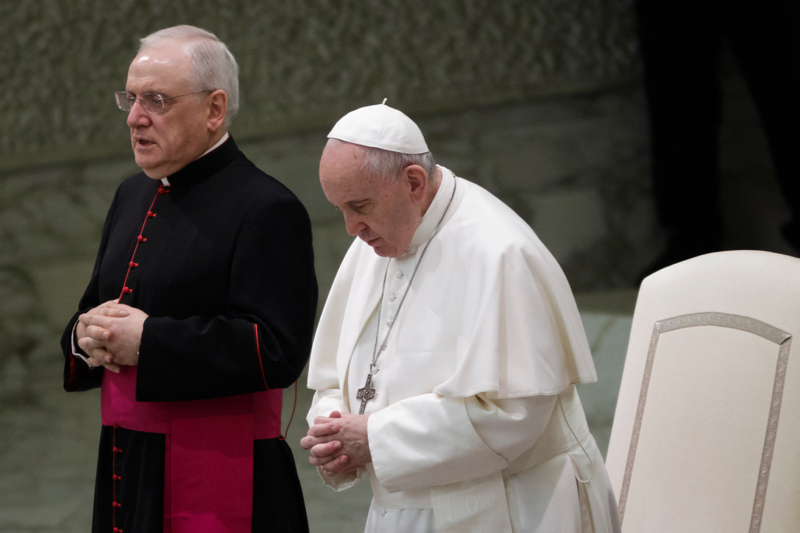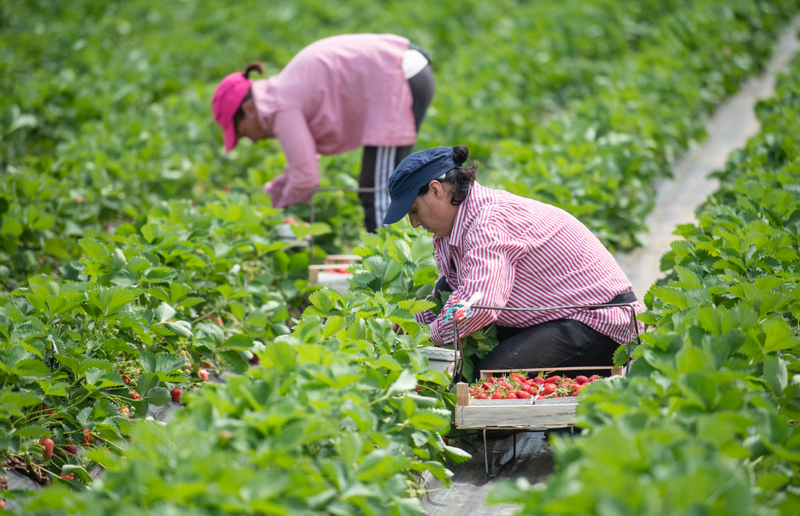Bishop Patrick Lynch has warned that the UK government’s post-brexit immigration policies could allow human traffickers to exploit non-EU seasonal workers.
Bishop Lynch, an auxiliary bishop of Southwark, is the lead bishop for migrants and chair of the Santa Marta Group UK, a group that campaigns against human trafficking and modern slavery.
“The government’s planned immigration changes leave many unanswered questions about how these workers will be protected under the new system and what steps will be taken to prevent traffickers exploiting any labour shortages that arise,” he said in a statement.
The government’s proposed new immigration system will discriminate in favour of highly-skilled migrant workers, and against “lower-skilled” and lower-paid workers. Oxford University’s Migration Observatory has reported that roughly 15 per cent of low-skilled workers in the UK (around 500,000 individuals) are internal EU migrants.
In response to this expected drop in EU workers, the agricultural sector will this year be able to recruit more non-EU seasonal workers on a temporary basis: up to 10,000 workers in 2020, a quadrupling of the 2,500 per year limit previously allowed. This new limit has attracted heavy criticism from farmers’ groups, who argue it falls far short of the 70,000 temporary workers required by UK farms each year.
Given the importance of the UK food and drink industry to regional economies, and the heavy dependence of that industry on temporary workers, the discrepancy has also raised concerns that illegal trafficking may fill the labour supply gap.
Pointing to existing problems with exploitation and trafficking amongst seasonal workers, Bishop Lynch called on the Government to provide information on “processes for inspecting recruiters, working practices and living conditions.”
“Traffickers will seek every opportunity to abuse new immigration policies so the government has a responsibility to ensure that the proper safeguards are in place,” he said.
Last year the Metropolitan Police reported a more than tenfold increase in the number of trafficking victims reported in London from 2013 to 2018, and the Local Government Association reported an 807 per cent increase in the number of child victims of trafficking.The International Labour Organisation has estimated that 40 million people worldwide were victims of human trafficking in 2019.
The Bishop’s intervention comes as the Jesuit Refugee Service UK (JRS UK) called for better support for newly recognised refugees in the wake of a report by the Red Cross that found significant barriers to accessing support, the job market, and housing. JRS UK called for an extension to the “move on” period during which refugees can access asylum support.
Sarah Teather, JRS UK’s director, said: “The move-on period is not the only cause of destitution amongst refugees, however. Those we accompany at JRS UK have usually been made destitute by the asylum system long before they reach that point. More root and branch reform to the system is needed to prevent their misery.”
Meanwhile the Bishops of England and Wales have called on Catholics to make sure European parishioners, friends and relatives know how to secure settlement rights in the wake of Brexit.
In a letter to all bishops last week Bishop Paul McAleenan, a Westminster auxiliary and lead bishop for migration and asylum, warned: “We are particularly concerned about older and vulnerable people who may struggle to navigate the process, require assistance with the online application or not even know that their status is at risk. In many cases their main point of contact with society will be through the Church.”
He wrote: "Given the very large proportion of European citizens who are Catholic, this affects many of our parishioners across England and Wales. The Catholic Church in England and Wales stands in solidarity with all European citizens who have made their homes here. They are a valued part of our parishes, schools and communities."
The deadline to apply expires on 30 June and it is estimated that around 25 per cent have not yet applied. If they fail to do so, they are at risk of losing their right to live, work and access services in the UK.



 Loading ...
Loading ...